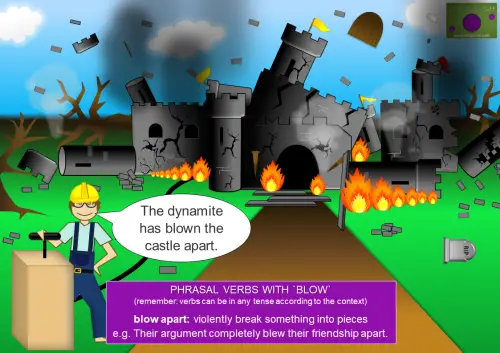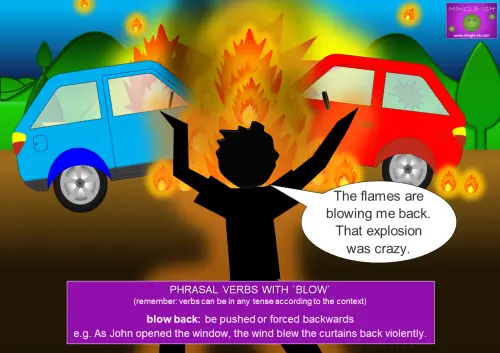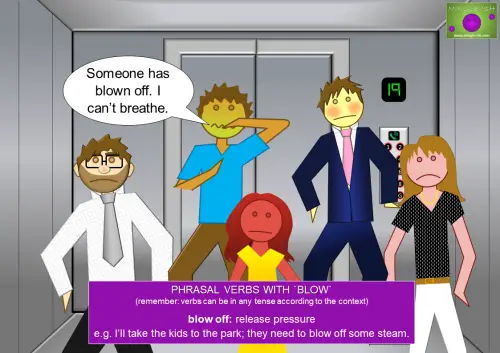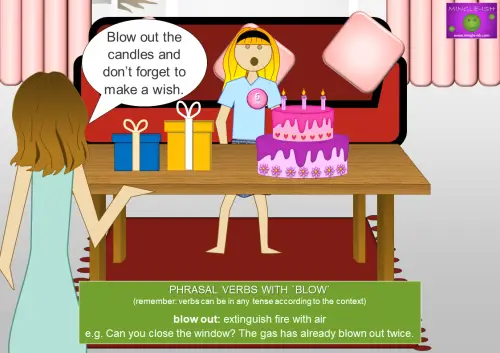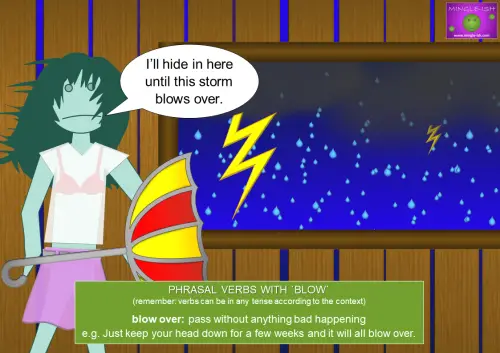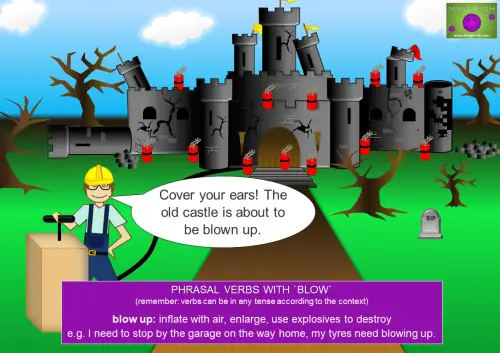Contents
Confused by phrases like “blow up” or “blow off”? You’re not alone! This guide breaks down the most common phrasal verbs with “blow,” explains their meanings, and shows you how to use them confidently. Let’s make mastering these phrases a breeze!
What does ‘blow’ mean?
The word ‘blow‘ can mean many different things. As a verb, the meaning is to expel air through the mouth or a current of wind.
For example:
- If you blow onto my hand, the card will disappear. (expel air)
- The strong wind is blowing through the forest. (wind)
Blow is an irregular verb. The past tense is blew and the past participle is blown.
phrasal verbs with blow list
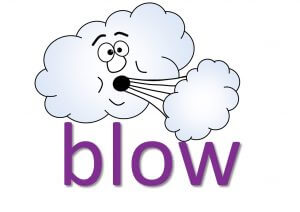
blow apart
meaning – violently break something into pieces
example – Their argument completely blew their friendship apart.
blow someone away/be blown away
meaning – to amaze someone
example – I watched a really good film about aliens, the special effects blew me away.
blow back
meaning – be pushed or forced backwards
example – As John opened the window, the wind blew the curtains back violently.
blow off
meaning – release pressure
example – I’ll take the kids to the park; they need to blow off some steam.
blow out
meaning – extinguish a fire with your mouth
example – Can you close the window? The gas has already blown out twice.
blow over
meaning – pass without anything bad happening
example – Just keep your head down for a few weeks and it will all blow over.
blow up
meaning – inflate with air, enlarge, use explosives to destroy
example – I need to stop by the garage on the way home, my tyres need blowing up.
And there you have it – everything you need to know about phrasal verbs with “blow.” Whether it’s “blow up,” “blow over,” or “blow away,” mastering these expressions can really help you sound more natural in English conversations. Don’t stop here – head over to my other phrasal verb pages to explore more popular English phrases that will level up your English skills. Keep practising, and you’ll be blowing everyone away with your language skills in no time!
